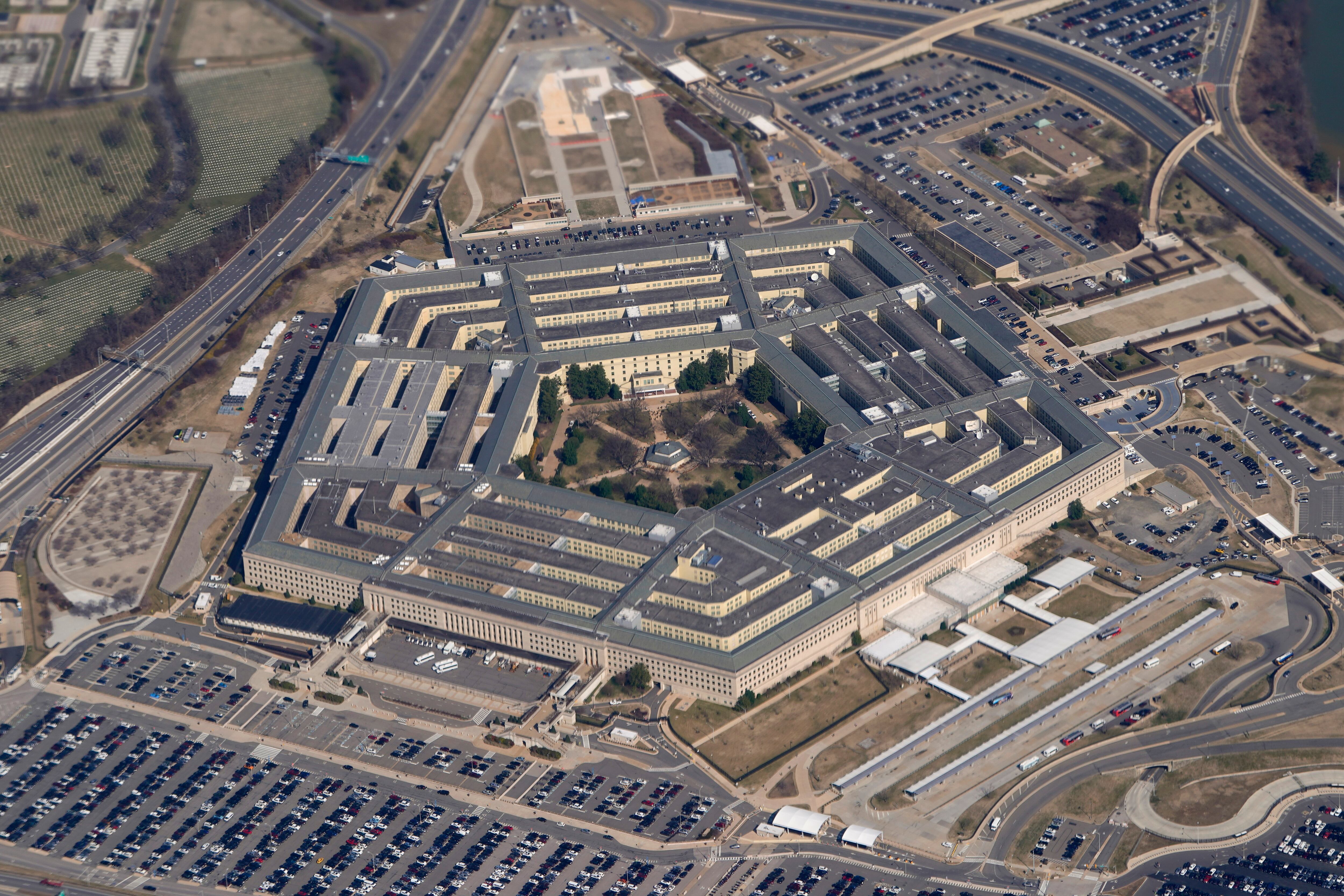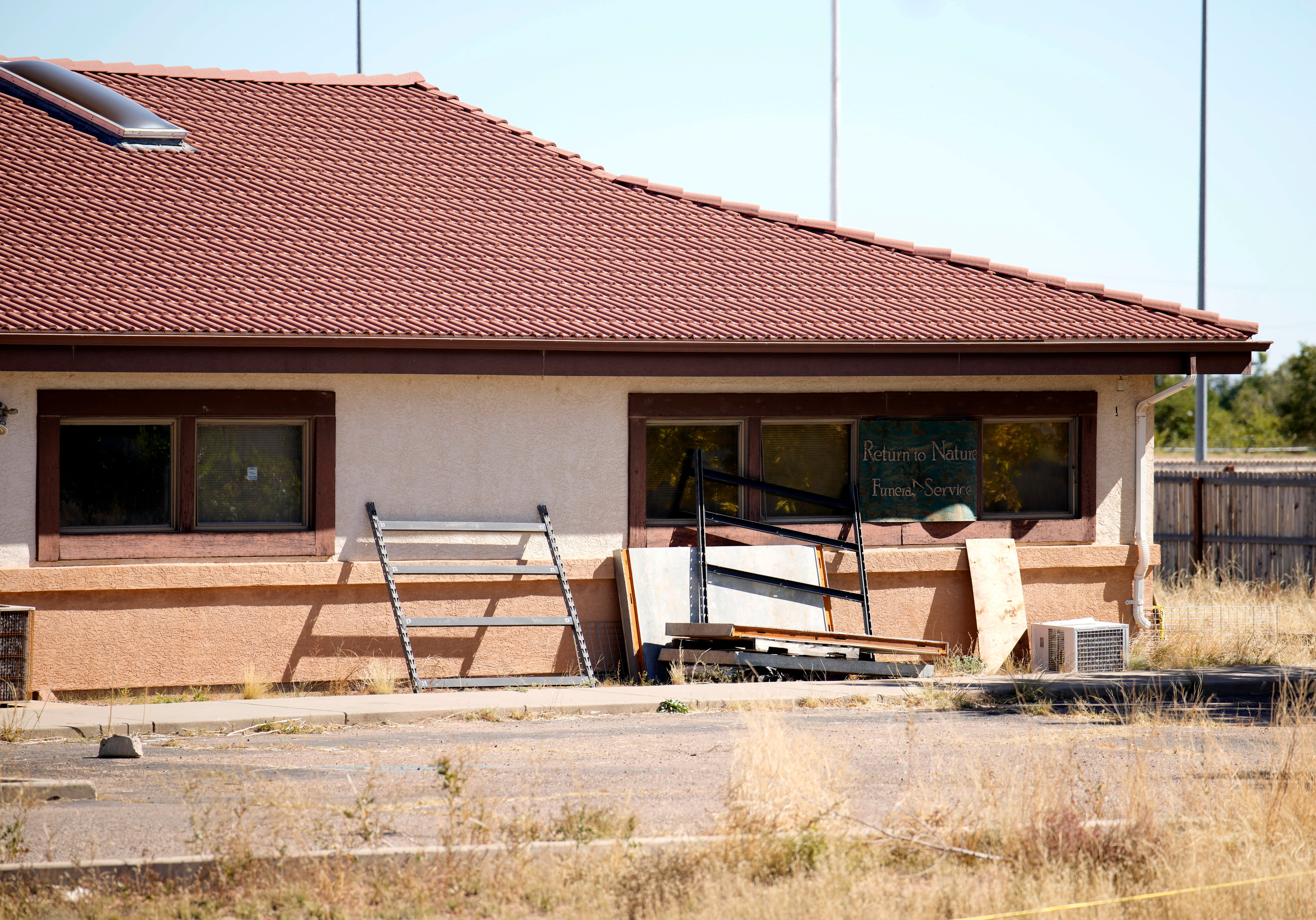By Colleen Long, Lolita C. Baldor and Zeke Miller
A U.S. fighter jet shot down an “unidentified object” over Lake Huron on Sunday on orders from President Joe Biden, believed to be the same one tracked over Montana and monitored by the government beginning the night before, the Pentagon said.
It was the fourth object shot out of the sky by U.S. fighter jets in eight days, along with ones over Alaska and Canada and a suspected Chinese spy balloon. Pentagon officials have said they don’t know when the last shootdown of an unknown or unauthorized object over U.S. territory occurred before this spate of incidents.
U.S. authorities have made clear that they constantly monitor for unknown radar blips, and it is not unusual to shut down airspace as a precaution to evaluate them. But the unusually assertive response was raising questions about whether such use of force was warranted, particularly as administration officials said the objects were not of great national security concern and the downings were just out of caution.
The extraordinary air defense activity began in late January, when a white orb the officials said was from China appeared over the U.S. and hovered above the nation for days before fighter jets downed it off the coast of Myrtle Beach, South Carolina. That event played out over livestream. Since, then many Americans have been captivated by the drama playing out in the skies as fighter jets scramble to shoot down objects.
The latest brought down was first detected on Saturday evening over Montana, but it was initially thought to be an anomaly. Radar picked it up again Sunday hovering over the Upper Peninsula of Michigan and it was going over Lake Huron, according to U.S. officials, who had knowledge of the downings and spoke to The Associated Press on condition of anonymity to discuss the sensitive operations.
U.S. and Canadian authorities had restricted some airspace over the lake earlier Sunday as planes were scrambled to intercept and try to identify the object. It was octagonal, with strings hanging off, but had no discernable payload. It was flying low at about 20,000 feet, according to one of the officials.
Meanwhile, U.S. officials were still trying to precisely identify two other objects shot down by F-22 fighter jets, and were working to determine whether China was responsible as concerns escalated about what Washington said was Beijing's large-scale aerial surveillance program.
An object shot down Saturday over Canada's Yukon was described by U.S. officials as a balloon significantly smaller than the balloon — the size of three school buses — hit by a missile Feb. 4. A flying object brought down over the remote northern coast of Alaska on Friday was more cylindrical and described as a type of airship.
Both were believed to have a payload, either attached or suspended from them, according to the officials who spoke to The Associated Press on condition of anonymity to discuss the ongoing investigation. Officials were not able to say who launched the objects and were seeking to figure out their origin.
The three objects were much smaller in size, different in appearance and flew at lower altitudes than the suspected spy balloon that fell into the Atlantic Ocean after the U.S. missile strike.
The officials said the other three objects were not consistent with the fleet of Chinese aerial surveillance balloons that targeted more than 40 countries, stretching back at least into the Trump administration.
Senate Majority Leader Chuck Schumer told ABC’s “This Week” that U.S. officials were working quickly to recover debris. Using shorthand to describe the objects as balloons, he said U.S military and intelligence officials were “focused like a laser” on gathering and accumulating the information, then compiling a comprehensive analysis.
“The bottom line is until a few months ago we didn’t know about these balloons,” Schumer, D-N.Y., said of the spy program that the administration has linked to the People’s Liberation Army, China’s military. “It is wild that we didn’t know.”
Eight days ago, F-22 jets downed the large white balloon that had wafted over the U.S. for days at an altitude of about 60,000 feet. U.S. officials immediately blamed China, saying the balloon was equipped to detect and collect intelligence signals and could maneuver itself. White House officials said improved surveillance capabilities helped detect it.
China's Foreign Ministry said the unmanned balloon was a civilian meteorological airship that had blown off course. Beijing said the U.S. had “overreacted” by shooting it down.
Then, on Friday, North American Aerospace Defense Command, the combined U.S.-Canada organization that provides shared defense of airspace over the two nations, detected and shot down an object near sparsely populated Deadhorse, Alaska.
Later that evening, NORAD detected a second object, flying at a high altitude over Alaska, U.S. officials said. It crossed into Canadian airspace on Saturday and was over the Yukon, a remote territory, when it was ordered shot down by Prime Minister Justin Trudeau.
In both of those incidents, the objects were flying at roughly 40,000 feet. The object on Sunday was flying at 20,000 feet.
The cases have increased diplomatic tensions between the United States and China, raised questions about the extent of Beijing’s American surveillance, and prompted days of criticism from Republican lawmakers about the administration’s response.
Rep. Mike Turner, chairman of the House Intelligence Committee, said the administration was looking “somewhat trigger-happy.”
“Although that is certainly preferable to the permissive environment they showed when the Chinese spy balloon was coming over some of most sensitive sites,” Turner, R-Ohio, told CNN’s “State of the Union.”
After the shootdown last weekend, Chinese officials said they reserved the right to “take further actions” and criticized the U.S. for “an obvious overreaction and a serious violation of international practice.”
Rep. Jim Himes of Connecticut, the top Democrat on the House Intelligence Committee, urged the administration to be as forthcoming as possible, saying the lack of solid information was fueling online speculation.
Himes said it was clear from briefings in recent years “that there is a lot of garbage up there” in the sky.
“The truth is that most of our sensors and most of what we were looking for didn’t look like balloons,” he told NBC’s “Meet the Press.”
Associated Press writers Aamer Madhani, Michael Balsamo, Ellen Knickmeyer and Tara Copp contributed to this report.













